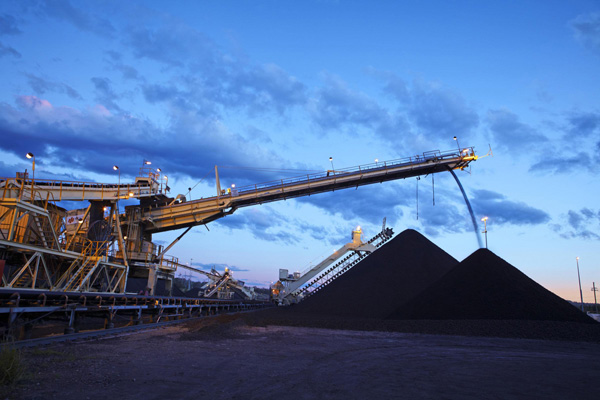Rio Tinto revenue from China grows despite economic slowdown
By Du Juan (China Daily) Updated: 2015-03-05 07:46
 |
|
Coal loading operations proceed at Coal and Allied's Mount Thorley Warkworth mine in the Hunter Valley about 140 kms (87 miles) north of Sydney in this October 18, 2010 file handout photo. [Photo/Agencies] |
China still accounted for 38 percent of total group revenues at Rinto Tinto Plc last year, despite the country's slowing pace of economic growth, the world's second-largest mining company said on Wednesday.
Ren Binyan, head of Rio Tinto China, said the company continued to have strong confidence in the world's second-largest economy as it continues its economic growth transformation.
According to the company, it had total sales of $19.1 billion in China in 2014, or 38 percent of global sales - a 3 percent increase compared with the previous year.
"China is increasingly important to our business. We will continue to increase our output to supply China," said Ren.
He said the company plans to increase its annual iron ore output to 330 million metric tons by the end of 2015. Last year it produced 300 million tons of iron ore, about two-thirds of which were supplied to China.
Rio Tinto works closely with various industrial partners in China. With Aluminum Corporation of China, a State-owned metal giant, for instance, it has established a joint venture focused on mining industry technology and innovation, an expansion of its existing joint venture with the company on exploration.
"By doing so, we can apply more advanced technologies from the Australian mining industry to resources exploration in China," he said.
On Tuesday, Rio Tinto revealed it would begin mining big data at its world-first Analytics Excellence Center, in Pune, India, to enhance equipment productivity across its global operations.
The center will assess massive volumes of data captured by an array of sensors attached to its fixed and mobile equipment which will enable experts to predict and prevent engine breakdowns and other downtime events, for instance. This will significantly boost productivity and safety, and reduce maintenance costs and production losses from unplanned breakdowns, it said.
"The economic slowdown is a challenge, but also offers opportunities for foreign companies," said Ren. "Many Chinese manufacturing companies are seeking business from overseas markets and we can contribute to that by bringing them with us to the global market."
In November Rio Tinto signed a five-year agreement with Hunan-based Xiangtan Electric Manufacturing Group Co Ltd for the latter to provide it with trucks and other mining equipment for operations across the globe.
Cai Weici, a senior adviser at the China Machinery Industry Federation, said China's machinery manufacturing industry has been facing severe overcapacity in recent years, and faced with toughening conditions, a global deal such as this one will become crucial for recovery.
"Cooperating with big foreign clients (such as Rio) is an effective way to go abroad," he said. Iron ore prices fell 47 percent last year and has dropped another 13 percent since the beginning of this year to around $62 per ton, according to data from industrial information provider The Steel Index.
Rio Tinto refused to predict the eventual average iron ore price this year, saying only that it will continue an efficient supply of the resource to China.
- Israel requests to join Asian Infrastructure Investment Bank
- Chinese stocks rebound on April 1
- China, the West in Africa: more room for cooperation than competition
- Nanjing cuts taxi franchise fees
- Air China increases flights to Milan, Paris
- JD.com raises delivery charges
- Veteran corporate strategist upbeat about China economy
- L'Oreal China sales revenue up 7.7% in 2014

















